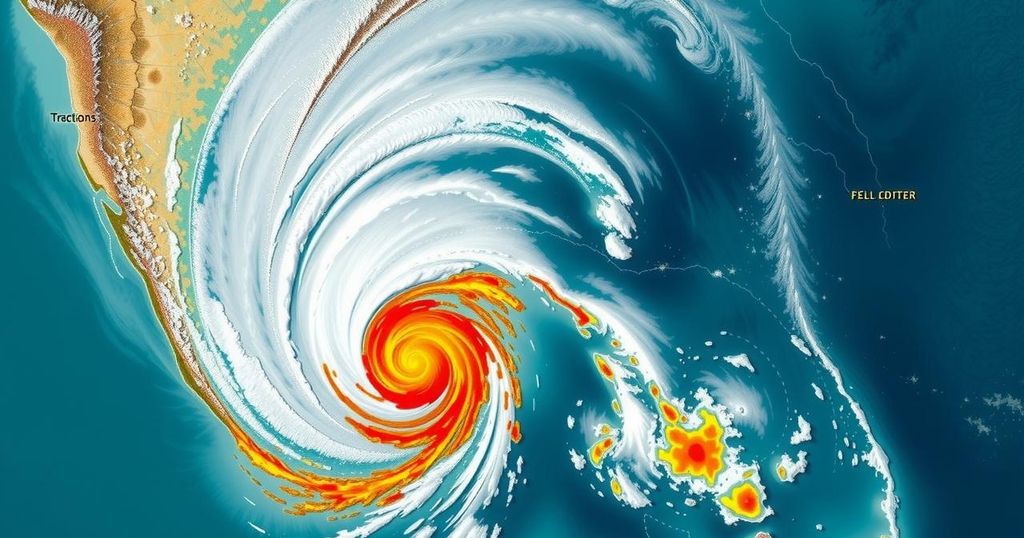Mozambique’s Humanitarian Crisis Intensifies Amid Cyclones and Conflict
Mozambique faces acute humanitarian crises with 3.3 million people experiencing food insecurity, exacerbated by Tropical Cyclone Chido which resulted in significant casualties and displacement. Violent conflict has further complicated the situation, leading to increased IDPs and limited humanitarian access. Urgent action is required to meet the needs of vulnerable populations.
As of the latest assessments, Mozambique is currently facing a complex humanitarian crisis exacerbated by natural disasters, particularly Tropical Cyclone Chido, which made landfall on December 15. This catastrophe resulted in at least 73 fatalities and left approximately 329,500 individuals in immediate need of assistance, according to reports from the Government of the Republic of Mozambique (GoRM). The ongoing challenges are compounded by heightened violence from Non-State Armed Groups (NSAG), increased displacement in the Cabo Delgado Province, and significant health crises resulting from outbreaks.
In the wake of these difficulties, the number of internally displaced persons (IDPs) has surged, totaling approximately 717,000 as of June 2024. Particularly affected are the 577,000 IDPs in northern Mozambique, indicating a growing trend of forced migration due to conflict. Amid these pressing circumstances, humanitarian aid remains critically limited due to security concerns, which have hindered access to those in need.
Moreover, food security in the region is at serious risk, with reports suggesting that about 3.3 million individuals will face acute food insecurity between November and February. This is largely attributed to diminished harvests, which have led to early depletions of food stockpiles, placing approximately 10 percent of the population at IPC (Integrated Food Security Phase Classification) Crisis level. These ongoing crises necessitate urgent attention and resource allocation to address the dire humanitarian needs of Mozambique’s vulnerable populations.
Mozambique has been grappling with recurrent humanitarian challenges, including conflict, climate change, and natural disasters such as cyclones. Recent evaluations reveal a dire situation where millions are in urgent need of food as well as basic humanitarian assistance. The increasing violence from Non-State Armed Groups, particularly in the northern sectors of the country, has resulted in significant displacement and heightened protection concerns. The combination of sociopolitical instability and climate-related emergencies has created a scenario demanding immediate international humanitarian response.
In summary, Mozambique faces a multi-dimensional humanitarian crisis rooted in natural disasters, conflict, and food insecurity. With millions in need, including a staggering number of internally displaced individuals, the situation calls for immediate and coordinated humanitarian efforts. The urgent response is critical to mitigate the impacts of these overlapping crises and to support the affected populations as they navigate the challenges ahead.
Original Source: reliefweb.int




Post Comment